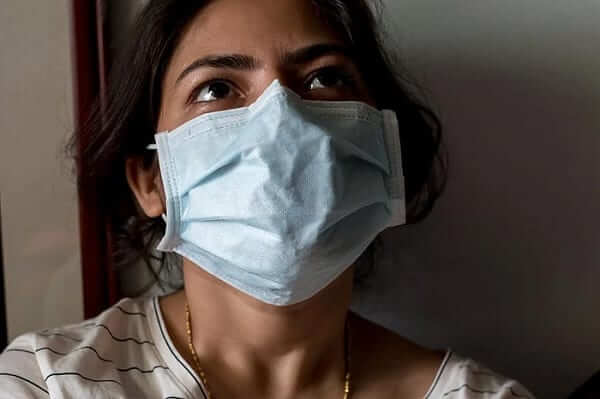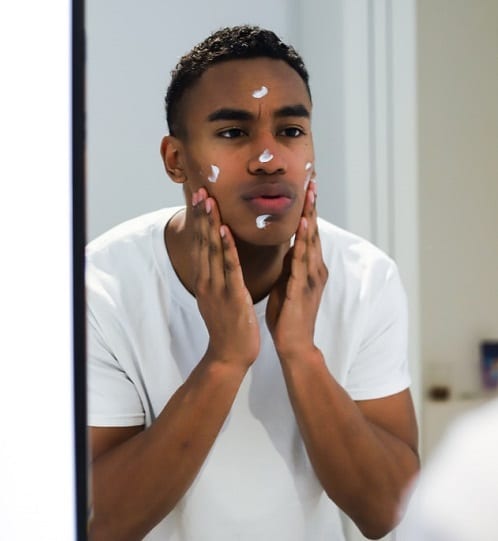Wit the ongoing pandemic a number of do’s and don’ts must be followed. It is likely that the use of masks will remain a constant part of our lives in the near future; wearing a mask at work, while running errands or just walking around to keep you safe. Since masks persistently rub against your skin you may experience acne; let’s understand how to handle these breakouts better.
READ ALSO: Which face mask should I wear?
Time spent wearing reusable masks may result in a rash or an acne breakout now cited as ‘Maskne’. Using face masks may cause skin irritation and breakouts for many reasons – type of fabric and tightness over the face are a few examples; the material may cause excessive friction to the skin. Many are sensitive to fabrics and when paired with makeup, dirt and sweat, it is a recipe for acne. Irritation caused by wearing masks is likely to be a result of ‘contact dermatitis’ – an allergic reaction to cloth materials; the bacteria formed from not cleaning the mask well enough or re-usage of disposable masks. The use of a mask may lead to abrasions on the bridge of your nose, chin, cheeks, or also behind the ears.
Here are a few tips, shared by Dr Kiran Godse, consultant dermatologist in Hiranandani Hospital Vashi, to prevent or treat breakouts while safely using masks. It includes:
Mask hygiene
First and foremost, mask cleanliness must be the topmost priority, it should be washed (if re-usable) or be swapped for a new one after every use
If you experience skin irritation, use antiseptic soap with warm water to clean your mask. Rinse it thoroughly and ensure it is completely dry before use; you may choose to dry steam your mask in the washing machine
Skincare
Makeup may clog your pores and wearing makeup under a mask could increase the acne or breakouts; take a break from using any cosmetics for a while, or at least till you get it treated
Cleanse your skin regularly by washing your face every morning and in the night with a mild facewash that will help unclog pores; it is best to then use an oil free moisturiser in place of water-based moisturiser afterwards
Do not squeeze or break your pimples; this will further lead to inflammation and may also infect the area
Exfoliation is also important as it helps the skin cells turnover. Salicylic or Glycolic Acids present in exfoliates will help prevent acne. These are also available in the form of serums
Avoid using products with Petrolatum, an ingredient used in cream and ointments (petroleum jelly)
Before using and after removing your face mask, cleanse and then moisturize your face
READ ALSO: Khadi mask, anyone?
Choosing the right fabric
Know your skin type. The last problem you’d want to deal with is an itchy skin and face. Fabric sensitivity varies from person to person and different fabrics come with different textures. Look for a soft and breathable material that is able to absorb moisture
Do not let go of the basic hygiene practices, washing your hands thoroughly before going, before wearing your mask, out as well as immediately after returning home. If issues persist, and there is an infection scare, you must consult your doctor immediately
Remember, we are living in a time where safety and precaution are paramount in defeating an unforeseeable adversary!
IANS





